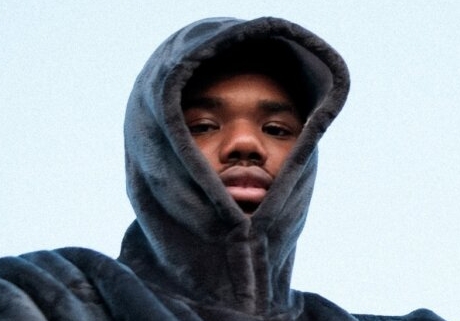Big Deal on Calling Out Keem Macwap: Speaking Truth, Street Code, and Podcasting in the Digital Age
In the intersection of street culture and social media, voice and presence are currency. Some people spark drama, others facilitate discussion, and only a few speak with authority and authenticity. Big Deal is one of those rare voices.
A figure rooted in the streets, Big Deal has earned respect not through theatrics, but through experience, insight, and consistency. His perspective on figures like Keem Macwap, podcasting, and online influence isn’t just commentary — it’s a lesson in autonomy, respect, and surviving in both digital and physical arenas.
The Question That Set the Tone
It all began with a simple but loaded question:
“Out of all the podcasting figures, who do you think would be the best actual podcaster if they made it out the leagues? Keem Macwap, obviously not zero.”
At first glance, it seems casual. But in Big Deal’s world, words carry weight. Keem, Smack, Macwap — all names synonymous with street commentary, online influence, and hip-hop culture — were being evaluated. And Big Deal’s take cut straight to the point:
“I’ll take Smack over because Macwap don’t got enough opinions… He’s good at facilitating drama, but he don’t really talk that much.”
Here, Big Deal distinguished between creating content that matters and simply being a vessel for drama. In the age of viral clips and online debates, that difference is critical — not everyone with a mic can hold an audience with substance, and the streets respect that.
The Fade Question — Testing Presence and Character
Big Deal didn’t stop at opinions. He tested boundaries.
“And when I asked Keem if he wanted a fade, the energy shifted. It’s not just talk—it’s tension, a test of character.”
Keem’s response?
“Yeah, I asked if he wanted to fight… he was out his body. He still ain’t right today… walking around, eyes red, like he ain’t had no sleep.”
In street culture, actions speak as loudly as words. The simple question about a “fade” isn’t about ego — it’s about assessing who respects the code, who understands risk, and who navigates conflict with awareness. Big Deal’s challenge wasn’t provocation for entertainment; it was a real-time measure of accountability, presence, and energy.
Autonomy and Operating on Your Terms
Big Deal has always emphasized control over your space.
“I run my own program… I ain’t running up under no recent… ain’t got to go walk the track with you. Straight up.”
He extends this philosophy beyond physical space to digital and social spaces.
“If I want to smoke spice in myself with my feet kicked up, I would do it… you got to think about, if you ain’t got it like that, why worry about what I’m doing?”
It’s a lesson in independence. In a culture that measures success by visibility, clout, and confrontation, Big Deal shows that influence comes from composure, self-awareness, and authenticity, not reactionary behavior.
Respect, Protocol, and the Rules of the Streets
Even when addressing potential conflict, Big Deal underscores the importance of respect and protocol.
“He got DPS in the hood or FAS in the hood… They made him wait till he got out of jail to tell him about his fades. That’s how it’s supposed to be.”
Every interaction in Big Deal’s world is layered with meaning. Social media amplifies conflict, but the streets have their own hierarchies, codes, and timing. Understanding that balance is essential to survival.
Big Deal’s approach is pragmatic: avoid unnecessary fights, but don’t shy away from holding your ground. It’s a philosophy that bridges digital influence with street credibility.
The Intersection of Podcasting and Street Commentary
Big Deal’s critique of Keem Macwap isn’t just personal — it’s commentary on the state of podcasting and online influence. Platforms like YouTube, Twitch, and even TikTok have become battlegrounds for authority and legitimacy.
Podcast hosts walk a fine line: some facilitate conversation, others create spectacle, and only a few deliver unfiltered truth with credibility. Big Deal positions himself in the last category.
“I don’t want no smoke with nobody… I’m just stepping on [the mic] speaking my mind. That’s what I do. I’m serving.”
He understands that true influence doesn’t come from clicks alone, but from earned authority, consistency, and a clear voice.
Street Code Meets Social Media
What makes Big Deal compelling is his ability to operate at the intersection of physical street culture and digital virality. He speaks a language that resonates offline and online. Every comment, every challenge, every clip carries weight and consequence.
The lesson here is clear: respect the code, know your space, and control your narrative. In a world dominated by reaction videos, viral headlines, and clout chasing, those principles are rare — and powerful.
Audience Reactions and Cultural Resonance
Big Deal’s commentary has resonated widely. Fans have praised his clarity, confidence, and authenticity, contrasting him with hosts and commentators who chase drama for views.
Social media exploded with reactions: some defending Keem, some aligning with Big Deal, and others reflecting on the importance of voice and presence in the digital age.
This dialogue highlights a broader truth: in today’s culture, authority is measured not just by followers, but by credibility, authenticity, and consistency.
A Lesson for Creators, Commentators, and Street Figures
Whether you’re a podcaster, a rapper, or someone navigating life in public spaces, Big Deal’s philosophy translates universally:
-
Speak your truth, even when it’s uncomfortable.
-
Control your space and your narrative.
-
Respect protocol and understand timing.
-
Autonomy is more valuable than clout.
-
Authenticity outlasts drama.
In an environment where noise is constant, following these principles separates influencers from opportunists.
Conclusion — Speaking Truth in Every Arena
Big Deal’s interaction with Keem Macwap isn’t just about confrontation or drama. It’s a masterclass in autonomy, street philosophy, and digital strategy.
In a world full of noise, Big Deal reminds us: sometimes the most powerful thing you can do is simply speak your truth… and stand your ground.
By blending street experience, personal integrity, and insight into digital culture, Big Deal demonstrates that authenticity is the ultimate form of influence — offline, online, and everywhere in between.
👉 Stay connected for the latest hip hop and streaming news at The Urban Spotlight Homepage
👉 For more background on Floyd Mayweather’s career and empire, check out his Wikipedia page










Leave a Reply
Want to join the discussion?Feel free to contribute!